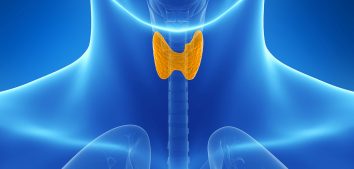
Nootropics: The Secret to a Sharp Mind
Have you ever wondered how you can improve your concentration, memory or creativity? Nootropics, or substances that improve cognitive functions, are becoming increasingly popular. In today’s text, I would like to introduce you to the concept of nootropics. I will show you who uses them and how they work 🙂
The Definition of Nootropics
Nootropics are substances (natural or synthetic) that affect our brain by supporting various processes related to thinking, memory, concentration, and creativity. In short – they help us function better mentally. However, it is important to choose those that are safe and effective.
Who Uses Nootropics
You have probably guessed that nootropics are particularly popular among people who have to work hard mentally. Students, entrepreneurs or people involved in science – all those who have to maintain maximum concentration and mental efficiency every day. Nootropics are also recommended for older people who want to improve memory or delay the aging processes of the brain. It is worth mentioning that synthetic nootropics, which belong to drugs, are used in the treatment of dementia, Alzheimer’s and Parkinson’s diseases.
The Mechanisms of Action
Nootropics can work in a variety of ways. Many improve blood flow in the brain, which increases the amount of oxygen and nutrients available to nerve cells. Others affect levels of neurotransmitters like dopamine and acetylcholine, which in turn improve mood, motivation, and learning. Some nootropics also act as antioxidants, protecting the brain from oxidative stress and cell damage.
How to Use Nootropics to Make Them Effective?
The key to effective use of nootropics is regularity and choosing the right substances. Before you decide to supplement, it is worth considering your needs: do you care more about improving memory, increasing energy, or perhaps boosting your focus? When choosing a nootropic, start with a smaller dose, carefully observing the effects. Remember that in some cases, regular use for several weeks is crucial to feel their full effect.
There are many nootropics available on the market, both natural and synthetic. The most commonly used include: Ginkgo biloba, ginseng, Rhodiola rosea, Bacopa monnieri, Centella asiatica, and piracetam. Let’s take a look at a few natural nootropics, the names of which are certainly familiar to you.
Ginkgo Biloba
Ginkgo is one of the oldest natural nootropics. The main active substances responsible for its action are flavonoids and terpenoids. It is a good choice for those who want to improve their cognitive abilities and slow down the aging processes of the brain. Ginkgo has neuroprotective properties – it protects the brain from the harmful effects of free radicals, and also regulates blood flow through the vessels of the brain.
Ginseng
Ginseng is known to increase energy levels and resistance to stress. Regular use can improve concentration, mood, and overall mental resilience. Ginseng also supports the immune system, so it will help you stay healthy when you are working under a lot of pressure.
Caffeine
Caffeine is probably known to everyone – it improves alertness and gives a boost of energy. It is found in coffee, tea, energy drinks and many dietary supplements. It works by blocking adenosine receptors in the brain, which delays the feeling of fatigue and improves our concentration. Thanks to this, after drinking a cup of coffee, we can more easily focus on tasks and increase our productivity. However, too much caffeine can lead to unpleasant effects, such as nervousness, hand tremors or sleep disorders, so it is advisable to consume it in moderation.
Using nootropics is a way to strengthen your mental abilities, improve your concentration and memory. However, it is important to choose the right substances and use them with caution. Remember that nootropics are to support you and they will not replace a healthy lifestyle or wholesome rest.









Comments No Comments
Join the discussion…